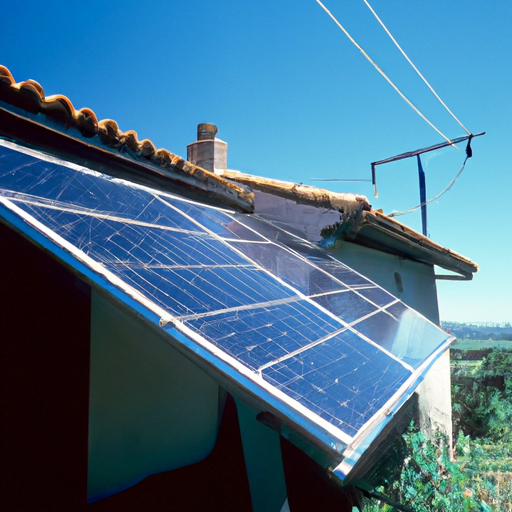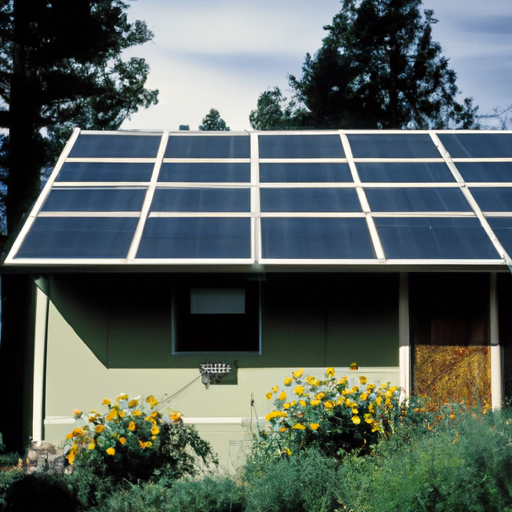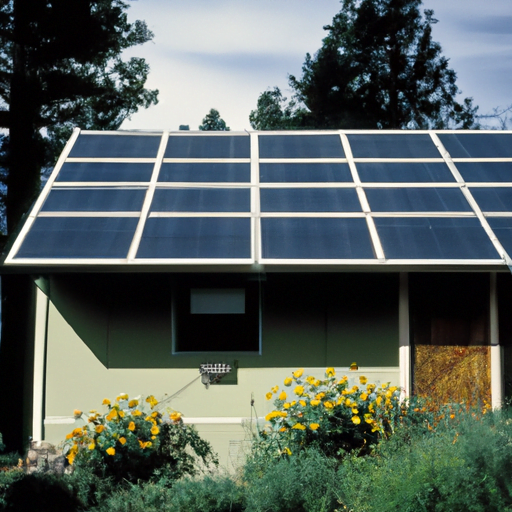Have you ever wondered about the legalities of living off the grid in Oregon? In a state known for its breathtaking natural beauty and environmental consciousness, it’s not surprising that many people are interested in embracing a self-sustainable lifestyle. But before you pack up your belongings and head out to live off the grid, it’s important to understand the legal implications of doing so.
Living off the grid refers to living independently from public utilities such as electricity, water, and sewage systems. This often involves generating your own power through renewable sources, collecting rainwater, and using composting toilets. While the idea of disconnecting from the grid and reducing your impact on the environment may seem appealing, it’s essential to navigate the legal landscape surrounding this lifestyle choice.
In Oregon, the legality of living off the grid depends on various factors, including zoning regulations and building codes. Different counties and cities within the state may have their own specific rules and regulations, so it’s crucial to do your research and understand the requirements in your desired location. In some cases, living off the grid may be allowed as long as certain conditions are met, such as obtaining proper permits and ensuring your dwelling meets safety standards. However, in other areas, off grid living may be more heavily regulated or even prohibited altogether. In the upcoming article, we will delve deeper into the legalities of living off the grid in Oregon, providing you with a comprehensive understanding of what is allowed and what is not. Stay tuned to learn more about how you can live off the grid in harmony with the law in this stunning state.

The Legalities of Living Off the Grid in Oregon
Off Grid Living in Oregon
Living off the grid has gained popularity in recent years as more individuals seek a self-sustainable lifestyle. Oregon, with its stunning landscapes and natural wonders, attracts many who are interested in this alternative way of life. However, before embarking on this adventure, it is crucial to understand the legal aspects that govern off grid living in Oregon. This article will delve into the specifics of zoning and building codes, environmental regulations, water and waste management, energy and power generation, food and agriculture, health and safety considerations, as well as navigating taxes and permits.
Understanding the Legal Aspect
While off grid living is not explicitly illegal in Oregon, there are various legal considerations and regulations that must be adhered to. It is essential to familiarize yourself with these to ensure compliance and avoid any potential legal issues. By understanding the legal framework, you can make informed decisions about your off grid lifestyle and mitigate any risks that may arise.
Zoning and Building Codes
One of the primary legal considerations for off grid living in Oregon revolves around zoning and building codes. Each county in Oregon has its own regulations regarding land use and building permits. Before establishing an off grid residence, it is crucial to research and understand the zoning restrictions in your chosen area. Some counties have specific zones for off grid living, while others may require additional permits and inspections to ensure compliance with building codes.
To navigate the zoning regulations, it is advisable to consult the county planning department or hire a professional familiar with local building codes. They can guide you through the permitting process and help ensure that your off grid dwelling meets the necessary safety standards.
Environmental Regulations
Oregon is renowned for its environmental consciousness, and living off the grid should align with the state’s commitment to sustainability and conservation. It is crucial to consider and comply with the environmental regulations specific to your off grid lifestyle choices.
For instance, if you plan to install solar panels or wind turbines for renewable energy generation, you may need to obtain permits and follow specific guidelines to ensure environmental protection. Additionally, if your off grid living involves farming or raising livestock, you must adhere to regulations regarding water usage, soil conservation, and animal welfare.
Water and Waste Management
Access to water and waste management is a significant consideration for off grid living. In Oregon, water rights are strictly regulated, and acquiring a water source for your off grid residence may require a separate permit. It is vital to familiarize yourself with the local water regulations and explore alternative water collection and storage methods such as rainwater harvesting.
Proper waste disposal is also crucial to maintain environmental and public health standards. Off grid dwellings typically utilize septic systems or composting toilets, both of which must comply with relevant regulations. It is essential to ensure that your waste management systems are designed and maintained in accordance with these regulations to prevent contamination and protect natural resources.
Energy and Power Generation
Generating your own energy is a key aspect of off grid living. Many off grid residences in Oregon rely on renewable energy sources such as solar power or wind turbines. Before installing any energy generation system, it is essential to research local regulations and obtain any necessary permits.
In addition to obtaining the appropriate permits, it is crucial to ensure that your energy generation system adheres to safety standards and does not pose a risk to the environment or neighboring properties. Following best practices for system installation, maintenance, and safety will help you enjoy your off grid lifestyle without any legal concerns.
Food and Agriculture
Off grid living often involves self-sustaining practices, including food production and agriculture. If you plan to grow your own food or raise livestock, it is essential to understand the legalities and regulations surrounding agriculture in Oregon. This includes obtaining any necessary permits for raising animals, ensuring compliance with food safety standards, and adhering to regulations regarding pesticide use and soil conservation.
By complying with these regulations, you can create a sustainable and legally compliant off grid agriculture system that meets your food and self-sufficiency goals.
Health and Safety Considerations
While off grid living can offer freedom and independence, it is crucial not to neglect health and safety considerations. Safety measures should include installing proper fire alarms, having an emergency evacuation plan, and maintaining roads and pathways for ease of access.
Additionally, off grid living may involve limited access to emergency services. It is essential to have a clear understanding of the nearest medical facilities, emergency response times, and alternative communication methods like two-way radios or satellite phones.
Navigating Taxes and Permits
Off grid living in Oregon can have implications for taxes and permits. For example, if you opt to disconnect from the power grid and generate your own electricity, you may be eligible for certain tax incentives for renewable energy. However, it is essential to consult a tax professional to ensure compliance with state and federal tax laws.
Similarly, obtaining necessary permits and licenses for off grid activities may vary depending on the location and specific activities involved. It is advisable to consult with local authorities, planning departments, and professionals who can guide you through the process of obtaining the required permits.
Conclusion
Living off the grid in Oregon offers a unique opportunity to embrace self-sufficiency and live harmoniously with nature. However, navigating the legalities of off grid living is essential to ensure compliance with zoning and building codes, environmental regulations, water and waste management guidelines, energy generation standards, agriculture regulations, health and safety considerations, as well as tax and permit requirements.
By understanding and adhering to these legal aspects, you can fully enjoy the benefits of off grid living while avoiding unnecessary legal complications. Remember, consulting professionals and local authorities is vital in ensuring that your off grid lifestyle in Oregon is both sustainable and legally compliant.





